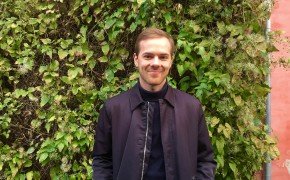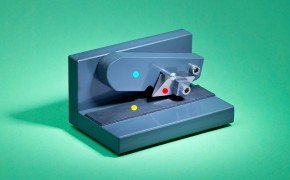Universitetsavisen
Nørregade 10
1165 København K
Tlf: 35 32 28 98 (mon-thurs)
E-mail: uni-avis@adm.ku.dk
Archive
If the Argument Association at the Faculty of Law had its way, then the law studies would have a less boring reputation.

Under certain conditions, it pays to study abroad. This is according to a master's thesis from the University of Copenhagen, which has studied the impact of studies abroad on the student's subsequent salary later in their career. UCPH head of education services wants to widen the study to include more study programmes.

Michelle Bornemann Honoré has received DKK 147,000 to do research on the disease EDS in muscles and jaw joints. She hopes it can help dentists reveal the disease earlier in patients.

Music historian Christine Jeanneret has, after being ‘discovered’ by the Danish Institute in Rome, received a prize for outstanding research into the migration of Italian musicians and opera singers to Copenhagen 250 years ago.

Niels Thordal needed a couple of gap years to zoom in on the right study programme after high school. But he finally found his inspiration by working with giant, deadly, saltwater crocodiles on a safari farm in Australia.

Michelle Jensen managed, despite her mental disability, to go through the first year of her agricultural economics studies in the prescribed time. Yet she fears she may be forced to drop out if she now applies for dispensation for a delay. After the Study Progress Reform, Danish universities do not often give students with disabilities extra time to complete the studies, as this would set off financial penalties.

It took the workshop for fine mechanics three days to build a low-tech apparatus to cut hard grains of the barley plant into millimetre-thin slices so nutrition scientists could investigate their properties.

As a kid, he never learned the multiplication tables. But he caught on to quantum mechanics in fourth grade, and it took him three months to finish his Danish secondary school. Now Max Fischer-Rasmussen is the youngest student at the University of Copenhagen (UCPH) – and for the first time surrounded by people who also see the beauty of mathematics.

Professor Jørgen Agerholm from the Department of Clinical Veterinary Medicine, who has researched hereditary cattle diseases since 1989, has uncovered a completely new disease due to a mutation in a breeding stud.

A DKK 2.6 million apparatus was originally purchased for research in the oil industry. Today, chemistry lecturer Tue Hassenkam uses it to sniff out the birth of life on Earth. The device has already played an important role in a discovery that he published in 'Nature' in July, and now he dreams of looking for traces of life on Mars.
